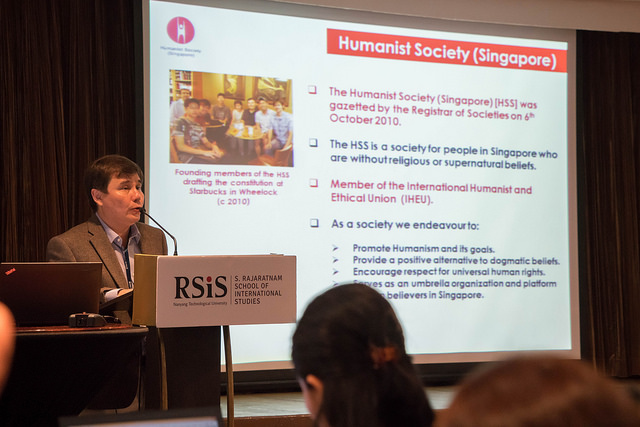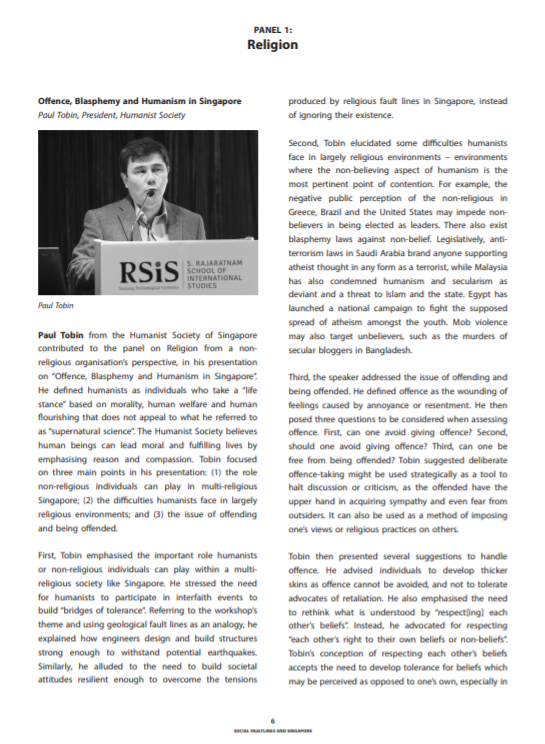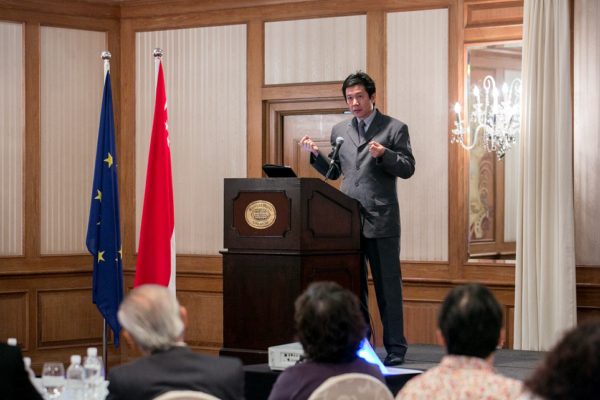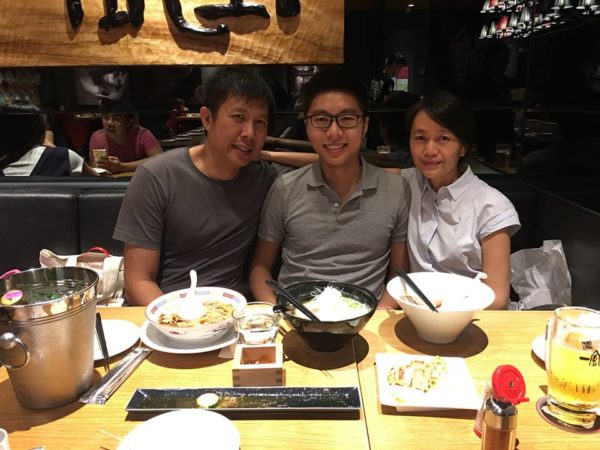A student working on his thesis project requested our opinion about how the lack of diversified representation in mainstream media affects the perception of LGBTQ people in Singapore. This is our email reply:
The Humanist Society is not a prominent local LGBTQ organisation. It is an organisation dedicated to issues concerning the non-religious segment of Singapore’s population.
However, we have spoken up on national issues such as laws concerning homosexuality as the debate often involves scientific evidence and Singapore’s secular space, two areas which we are concerned about. In addition, Section 377a criminalises a significant proportion of gay men whose own religious beliefs do not conflict with homosexuality, or who are non-religious. Section 377a also applies to homosexual Humanists and freethinkers, whose community and beliefs are supportive of their relationships.
The Humanist Society does not track recent media coverage of LGBTQ topics nor study the invisibility of some parts of the community. However, based on our general observations, the Singapore government is aware that the conservative majority in Singapore are still uncomfortable with the LGBTQ community. The impact of this majority can be seen in many policies, including media policies set by national regulators such as the IMDA.
This results in the lack of positive coverage for LGBTQ individuals on visual mediums such as TV. However, for cinema and print, in general, there’s more space for neutral or positive portrayals of LGBTQ individuals. The government adopts a light touch with regards to internet regulation and LGBTQ communities have used the internet and social media extensively for publicity. The Humanist Society itself has also written extensively to newspaper forums.
We do not know how exactly media portrayal of LGBTQ individuals has affected public perception of LGBTQ community in Singapore. There could be other factors influencing public perceptions, such as religious beliefs, personal experience, the lack of information about LGBTQ within sexuality education in schools, and the continued existence of section 377a itself.
Large numbers of Singaporeans trust the mainstream media, despite the rise of alternate media. The 2012 Edelman Trust Barometer has found that 65 percent of the informed public in Singapore trust the media — an increase from 59 per cent in 2011. Thus, the mainstream media still has considerable impact in informing public’s view of LGBTQ communities.
The Humanist Society hopes there can be a gradual increase in space to raise awareness of and respect for LGBTQ persons through public education and media coverage. LGBTQ persons, including children, are often subject to arbitrary discrimination, bullying and harassment, because of personal prejudices and ignorance. The impact of LGBTQ discrimination is also greatly felt by the friends and family of LGBTQ persons, who share in their struggle for acceptance.








